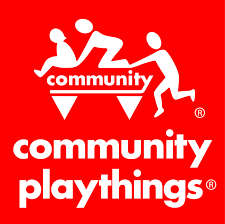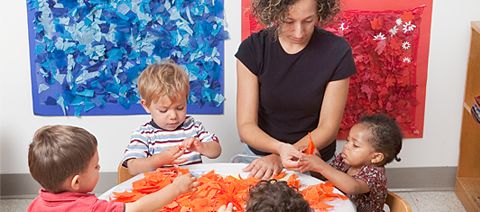What We Know to be True About Early Childhood Education
| January 2010Early care and education is essential. As early childhood professionals, we take for granted that people understand what we do and why we do it, but we know this is not always true.
It is our responsibility to make clear and cogent arguments for financial and educational support for our field. We need to be able to articulate our value in today’s world.
Ultimately, along with parents, we establish the foundation for learning. The work we do helps to create citizens who will be responsible for leading this nation in the years to come. It is an awesome job and requires devotion and skill. Oftentimes, our worth is not recognized as essential to the development of the next generation. It is not intuitive for those outside the field to see that the way we structure a stimulating classroom environment, communicate with and support parents, and create nurturing relationships has an impact on the economic and social growth of our nation. We need to help others understand the value of early childhood education.
Early care and education can be seen through many lenses; it is education, human and social services, and workforce development. Yet regardless of how it is seen, programs must demonstrate excellence. We all need to be able to make the argument for investment in strong and effective early education. We believe in the value of quality care and education for every child and family right from the beginning and understand that the healthy development of our nation begins at birth.
So as Early Childhood Education professionals, what do we know about ourselves? What is our value?
What We Do:
- We develop secure, consistent, responsive attachments with the children in our care.
- We help children build cognitive, social, and emotional skills necessary for healthy growth and development.
- We provide a safe, healthy, and stimulating world by creating high quality physical environments for children to grow and develop.
- We respect cultural and ethnic diversity.
- We encourage strong parent engagement by communicating, supporting, educating, and partnering with parents to create a community.
- We practice research-based strategies, beginning prenatally.
- We teach the foundations of numeracy, problem-solving, and literacy.
- We expect high staff qualifications for high-quality programs.
- We structure our environments so every child learns cooperation and civic responsibility.
As a Result:
- Children are ready for school.
- We lessen the effects of poor family environments, decrease the number of families likely to become involved with the welfare system, and as a result, increase family stability.
- We develop workforce skills such as motivation, persistence, and self-control that will help to increase adult employment and wages.
- We decrease the chance of criminal records and teen pregnancies.
- We improve outcomes for vulnerable children by providing parents access and education to prenatal and nutrition systems.
- We create the possibility for dramatic increases in language and literacy skills, math skills, social-emotional skills, and fine motor skills that are critical building blocks to later success.
- We increase high school graduation rates.
- We increase college attendance.
- We work to ensure that children who participate in our programs are less likely to need special education services.
- We work to ensure that the children we serve cost society and government less and contribute more to our country and the global community.
Investing in early childhood education is not only an economic imperative; it is the right thing to do. Not only are we preparing the next generation of workers, we are creating the next generation of leaders. We are developing members of our society who will know how to establish meaningful relationships, demonstrate respect for their communities, and be comfortable managing challenges in whatever path they choose. We are instilling in children, right from the beginning, academic and social skills necessary to achieve success. Research shows that children who have had a positive, high-quality early education experience enter kindergarten ready to read, eager to grow their scientific and analytical talents, and to continue to be healthy and integral members of a community. As early childhood professionals, our job is to inspire this art of possibility for our youngest citizens.
It is both a challenging and exciting time to be a young child in this society. We, as the adults nurturing and educating this generation, must be mindful of the opportunities that are before us. It is a good idea to practice talking about the value of your work so that others understand the critical nature of early childhood and respect your daily effort. It is the responsibility of each of us to send a firm message to invest in early childhood, because children are born learning, and the failure to deliver these essential services places our nation and its children at risk. Cost-benefit analysis has proven that the benefit returned to society comes in the form of reduced rates of crime, grade retention, and special education placements and increased rates of high school graduations and adult earnings. It has been proven that there is a return on investment of up to $16 for every dollar spent today. It is your duty as an early childhood professional to educate the community at large.
How we talk about our work helps influence the decisions of those with power to do the right thing.






